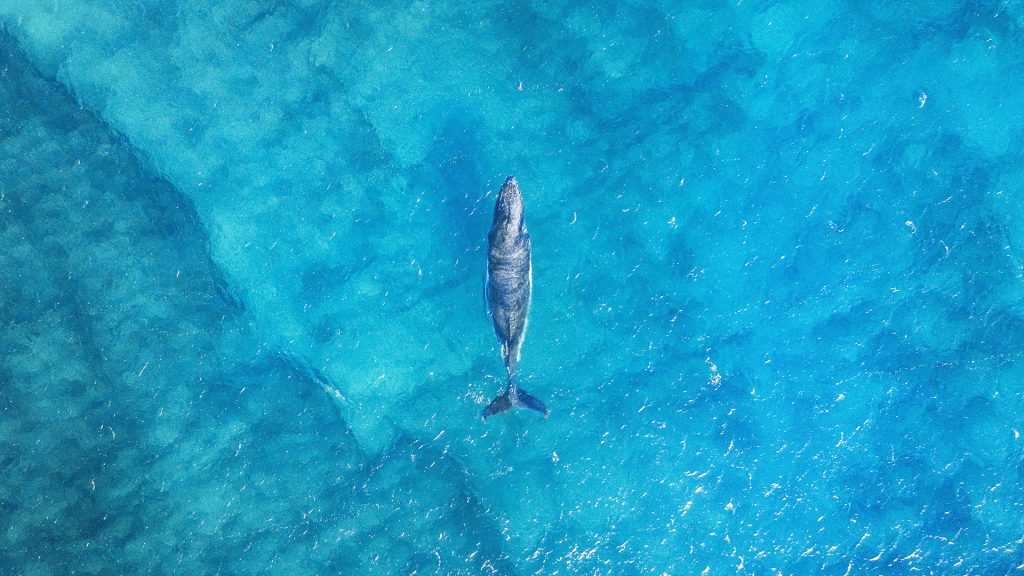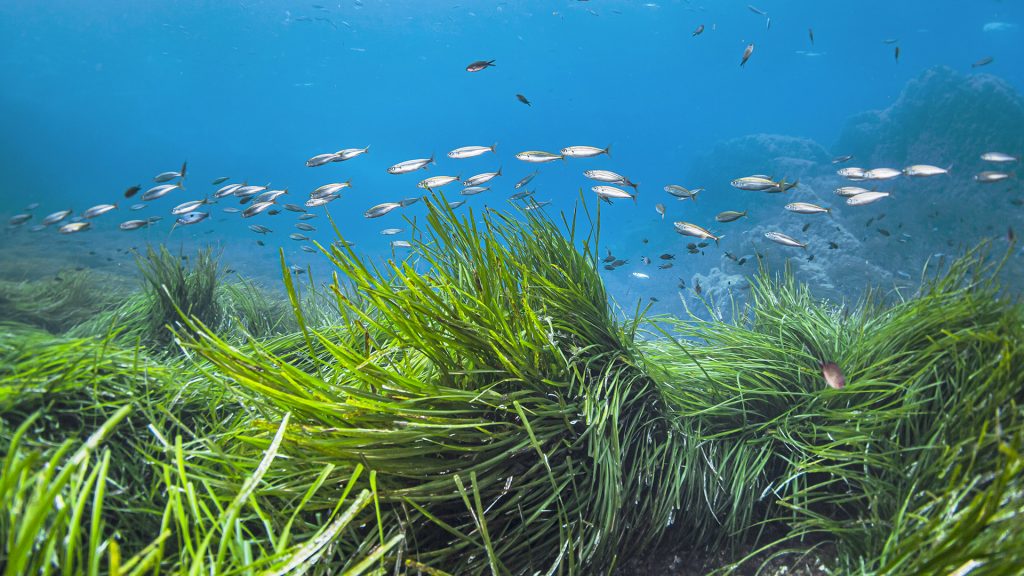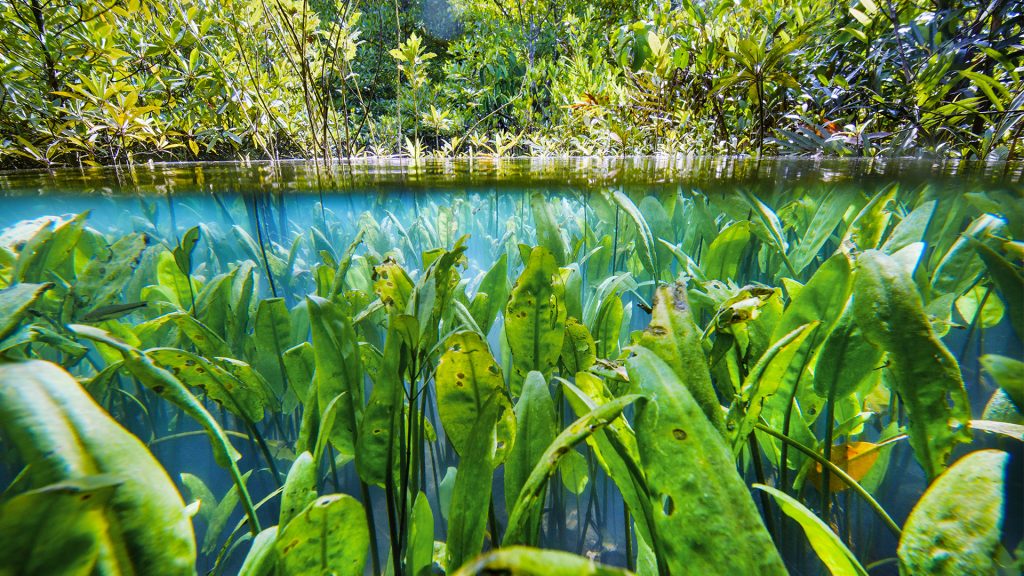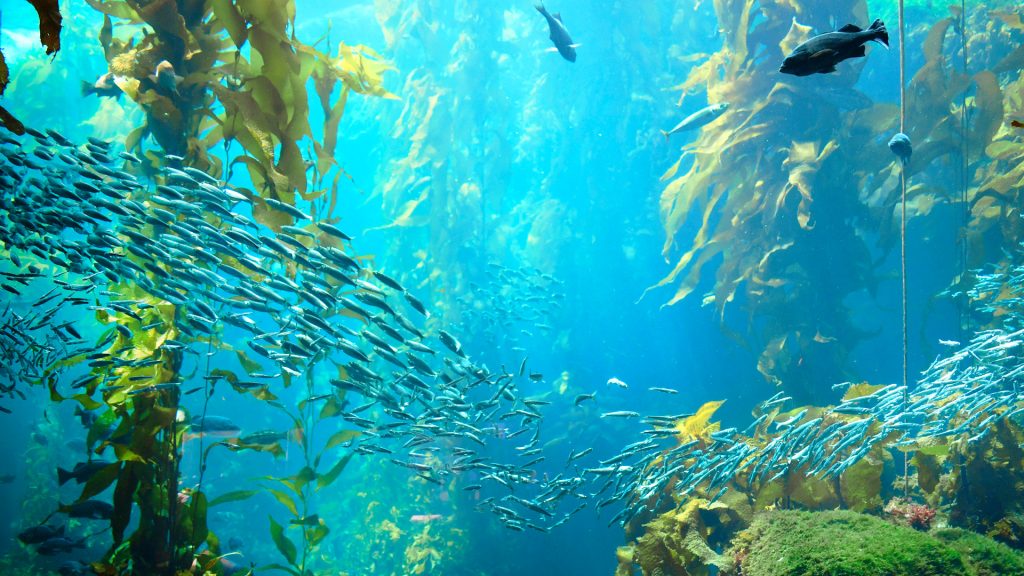
In the book Pianeta Oceano, biologist Mariasole Bianco describes an extraordinary ecosystem and discloses some surprising information: if it were not for the ocean, the temperature of the earth would have increased 36 degrees from the industrial revolution to the present day; 50% of the oxygen that we breathe is derived from the ocean, which is also able to absorb one third of the carbon dioxide that we produce every day. Who would have thought: a whale, during its lifetime, stores on average 33 tons of CO2, while a tree annually absorbs less than 22 kilos. The great mammal generally feeds at the depths of the ocean, but it defecates on the surface, releasing iron and nitrogen, elements which are capable of fertilizing phytoplankton. And it is specifically phytoplankton that plays a key role in climate regulation because it, in turn, absorbs carbon dioxide and, at the end of its life cycle, it sinks into the depths, stockpiling the carbon.
The sea depths, where no light reaches, have revealed – among other things – more biodiversity than the Amazon rainforest.

In general, the ocean thus could be called the blue lung of the world. This is also thanks to its vegetation of submerged green expanses and algae. For example, Posidonia beds: in the Mediterranean, they are one of the greatest sites of biodiversity and, trapping sediments among their roots, they purify the water and fight coastal erosion.

Mangroves, along the equator, are also an ideal environment for the reproduction of millions of species, and they represent a natural barrier against coastal erosion, storm surges and rising sea levels.

What is more: have you ever heard about forests of kelp? They are brown algae, of medium and large size, capable of growing to a height of 45 meters, equivalent to at least a ten-story building: they welcome sea otters and an extremely rich ecosystem, offsetting the carbon dioxide emitted by 6 million automobiles.

